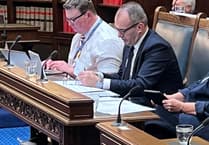The self-employed will no longer be able to claim Employed Person’s Allowance, under proposals to go for Tynwald approval next month.
It’s a move that will affect around 50 current claimants.
EPA is an income-related social security benefit which is paid to families and disabled workers who are employed for at least a minimum number of hours each week.
The number of required work hours depend on personal circumstances and children's ages, while the amount payable is based on family make up, housing and childcare costs, and income.
While eligibility for employed individuals is based on verified earnings and hours worked, self-employed claims rely on reported profits - often unverifiable due to cash-based income and untracked hours.
‘Having considered a number of options, it’s been concluded that EPA is not appropriate for the primarily self-employed — officers are unable to verify the income or hours worked by claimants and around 40% report earnings below the minimum wage, which raises questions about the sustainability of such businesses.’
On average, awards of EPA to self-employed individuals are worth just over £10,000 a year.
Around 950 people get EPA, including around 50 self-employed individuals.
The total cost of the benefit is around £9m a year, paid out of general revenue. Around £500,000 relates to self-employed claimants.
If approved, changes to the regulations will take effect from September 1 and no new self-employed claims for EPA will be accepted from that date.
Existing claimants will retain eligibility for up to 12 months, giving them the opportunity to either grow their business and move off EPA or transition to employment, which would maintain eligibility for EPA.
.jpeg?width=752&height=500&crop=752:500)

.jpeg?width=209&height=140&crop=209:145,smart&quality=75)

